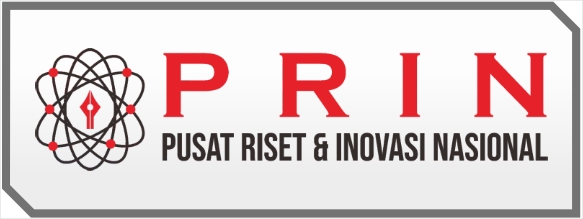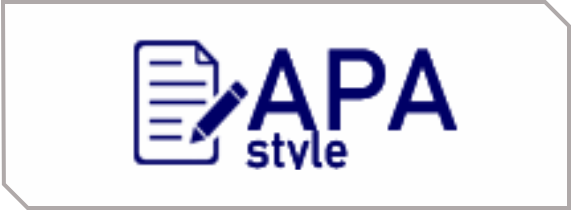Faktor-Faktor yang Mempengaruhi Efikasi Diri Ibu Menyusui di Dusun 1, Desa Tanjung Anom
DOI:
https://doi.org/10.62027/vitamedica.v2i4.218Keywords:
Self-Efficacy, Breastfeeding Mothers, Child HealthAbstract
Exclusive breastfeeding is important for the quality of children's health. However, the proportion of exclusive breastfeeding at the Deli Serdang City Health Center has only reached 45.6%, still far from the World Health Organization (WHO) target of 50%. Nurse self-efficacy is one of the important elements that influences nursing behavior. This study aims to determine factors related to breastfeeding self-efficacy. This research was cross-sectional, with a sample of 147 mothers obtained by purposive sampling. Breastfeeding Self-Efficacy (BSE) was measured using the Breastfeeding Self-Efficacy Short-Form. Data analysis used the Chi-Square test. The results of the study showed that there was a significant relationship between breastfeeding problems (p value=0.001), family support (p value=0.001), and support from health workers (p value=0.001) with breastfeeding self-efficacy. It was concluded that breastfeeding problems, family support, and support from health workers were factors related to breastfeeding self-efficacy in breastfeeding mothers. Therefore, health workers and families are expected to provide support to mothers when they have breastfeeding problems.
References
Annisa, L., & Swastiningsih, N. (2015). Dukungan sosial dan dampak yang dirasakan oleh ibu menyusui dari suami.Empathy, Jurnal Fakultas Psikologi 3(1), 16-22.http://dx.doi.org/10.12928/empati.v3i1.3013
Badan Kependudukan dan Keluarga Berencana, Badan Pusat Statistik, & Kementerian Kesehatan RI. (2017). Survei Demografi dan Kesehatan Indonesia 2017
Bagaray, EF, Langi, FLFG, & Posangi, J. (2024). Penetapan Pemberian ASI Eksklusif 24 Jam Terakhir Pada Bayi Umur 0 Sampai 6 Bulan Di Indonesia. KESMAS: Jurnal Kesehatan Masyarakat Universitas sama Ratulangi, 9(4), 48–62.https://ejournal.unsrat.ac.id/index.php/kesmas/article/viewFile/29484/28603
Celent, N., Astuti, T., & WU, JN (2017). Hubungan Pemberian ASI Eksklusif Dengan FrekuensiSakit Pada Bayi Usia 6-12 Bulan Di Wilayah Kerja Puskesmas Girisubo dan Di Puskesmas Girisubo Gunung Kidul. Jurnal Keperawatan GSH, 6(2), 33–39. doi:https://doi.org/10.35890/jkdh.v9i2.150
Dennis, C.-L. (2010). Efikasi Diri Menyusui. Penelitian Transisi Keibuan.http://www.cindyleedennis.ca/research/1-breastfeeding/breastfeeding-self-efisiensi/
Glassman, ME, McKearney, K., Saslaw, M., & Sirota, DR (2014). Dampak Efikasi Diri Menyusui dan Faktor Sosiokultural terhadap Pemberian ASI Dini di Daerah Perkotaan, yang Mayoritas Berpenduduk Dominika Masyarakat. Menyusui Obat, 9(6),301–307.http://doi.org/10.1089/bfm.2014.001
Gutierrez-de-Teran-Moreno, G., Ruiz-Litago, F., Ariz, U., Fernandez-Atutxa, A., Mulas-Martín, MJ, Benito-Fernandez, E., & Sanz, B. (2022). Keberhasilan menyusui di kalangan perempuan dengan tujuan untuk menyusui: Dari fisiologi hingga faktor sosial-budaya. Perkembangan Manusia Awal, 164, 1–9.
https://doi.org/10.1016/j.earlhumdev.2021.105518
Isyti'aroh, I., Rofiqoh, S., & Aktifah, N. (2019). Prediktor Kegagalan Menyusui Eksklusif: Studi Di Puskesmas Buaran Kabupaten Pekalongan Jawa Tengah Indonesia. Jurnal Keperawatan Indonesia, 22(1), 65–73. doi:https://doi.org/10.7454/jki.v22i1.775
Kabariyah, K., & Anggorowati, A. (2023). Efikasi Diri Menyusui di Wilayah Kerja Puskesmas Batang 1.Holistik Perawatan Dan Kesehatan Sains, 6(1), 12–18.
https://doi.org/10.14710/hnhs.6.1.2023.12-18
Keemer, F. (2013). Efikasi diri ibu dalam menyusui yang menggunakan strategi lini kedua untuk bayi cukup bulan yang sehat pada minggu pertama pascapersalinan: studi observasional Australia. Int Breastfeed J, 8, 18.https://doi.org/10.1186/1746-4358-8-18
Kemenkes RI. (2018). Hasil Utama Riset Kesehatan Dasar Tahun 2018. Kementerian Kesehatan Republik Indonesia.
https://kesmas.kemkes.go.id/assets/upload/dir_519d41d8cd98f00/files/Hasil-riskesdas- 2018_1274.pdf
Kurniawati, N., & Kurniasari, E. (2024). Pengaruh Konseling Cara Menyusui Terhadap Pelaksanaan Cara Menyusui Pada Ibu Yang Mempunyai Bayi Usia 0-2 Minggu Di Puskesmas Ngombol. Jurnal Komunikasi Kesehatan, 11(1).https://doi.org/10.56772/jkk.v11i1.158
Kusumawati, S. (2021). Hubungan Sikap dan Dukungan Tenaga Kesehatan dengan Keberhasilan Pemberian ASI Eksklusif Di Wilayah Puskesmas Berangas Kab.Barito Kuala. Jurnal Keperawatan Suaka Insan (JKSI), 6(2), 116-120. doi:https://doi.org/10.51143//jksi.v6i2.295
Komalasari, M., Solehati, T., & Widianti, E. (2016). Gambaran tingkat Self-Efficacy Ibu Post Seksio Sesarea saat Menyusui di RSKIA Kota Bandung. Jurnal Pendidikan Keperawatan Indonesia, 2(2), 95–103.https://doi.org/10.17509/jpki.v2i2.4744
Nankumbi, J., Mukama, AA, & Ngabirano, TD (2019). Prediktor efikasi diri dalam menyusui di kalangan perempuan yang datang ke klinik pascanatal di perkotaan, Uganda. Nursing Open, 6, 765–771.https://doi.org/10.1002/nop2.257
Rahayu, S., Hadisaputro, S., Hidayat, ST, Anggorowati. (2022). Karakteristik dan Faktor yang Berhubungan dengan Produksi ASI Ibu Pasca Persalinan: Studi Pendahuluan di Puskesmas Kota Semarang. EMBRIO, 14(1), 118–125.https://doi.org/10.36456/embrio.v14i1.5292
Ratu, RE, Engkeng, S., & Adam, H. (2024). Penentu Perilaku Pemberian Air Susu Ibu Eksklusif Di Wilayah Kerja Puskesmas Kecamatan Amurang Timur Kabupaten Minahasa Selatan. KESMAS: Jurnal Kesehatan Masyarakat Universitas Sam Ratulangi, 9(1), 70–76.https://ejournal.unsrat.ac.id/index.php/kesmas/article/view/28649
Ambarwati, R., Muis, SF, & Susanti, P. (2014). Pengaruh konseling laktasi intensif terhadap pemberian air susu ibu (ASI) eksklusif sampai 3 bulan. Jurnal Gizi Indonesia (Jurnal Nutrisi Indonesia), 2(1).https://doi.org/10.14710/jgi.2.1.
Titaley, CR, Dibley, MJ, Ariawan, I., Mu'asyaroh, A., Alam, A., Damayanti, R., Do, TT, Ferguson, E., Htet, K., Li, M., Sutrisna, A., & Fahmida, U. (2021). Faktor-faktor yang menentukan rendahnya efikasi diri dalam menyusui di antara ibu-ibu yang memiliki anak berusia kurang dari enam bulan: hasil dari studi BADUTA di Jawa Timur, Indonesia. International Breastfeeding Journal, 16(1), 12.
https://doi.org/10.1186/s13006-021-00357-5
Vitasari, D., Sabrian, F., & Ernawaty, J. (2018). Hubungan Dukungan Keluarga Terhadap Efikasi Diri Ibu Menyusui Dalam Memberikan ASI Eksklusif. Jurnal Online Mahasiswa (JOM) Bidang Ilmu Keperawatan, 5(2), 201–210.https://jom.unri.ac.id/index.php/JOMPSIK/article/view/21067
Downloads
Published
How to Cite
Issue
Section
License
Copyright (c) 2024 VitaMedica : Jurnal Rumpun Kesehatan Umum

This work is licensed under a Creative Commons Attribution-ShareAlike 4.0 International License.

















